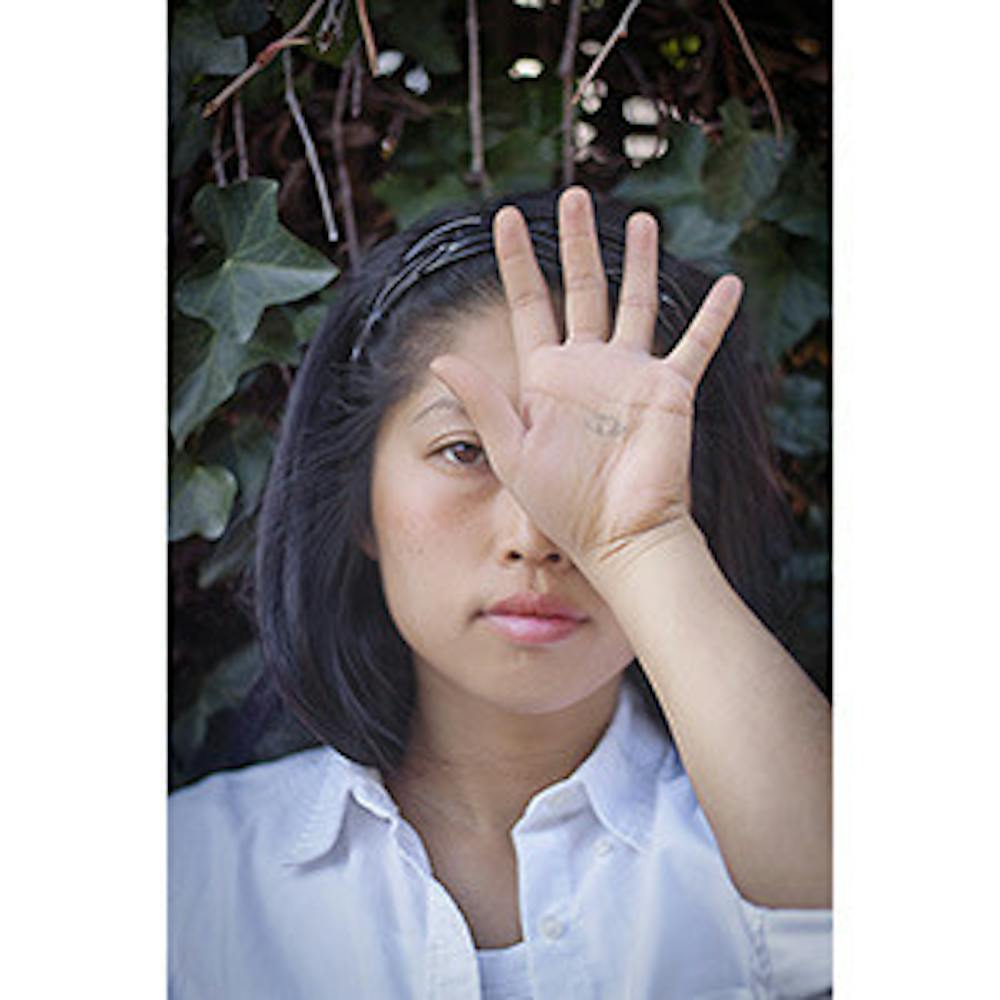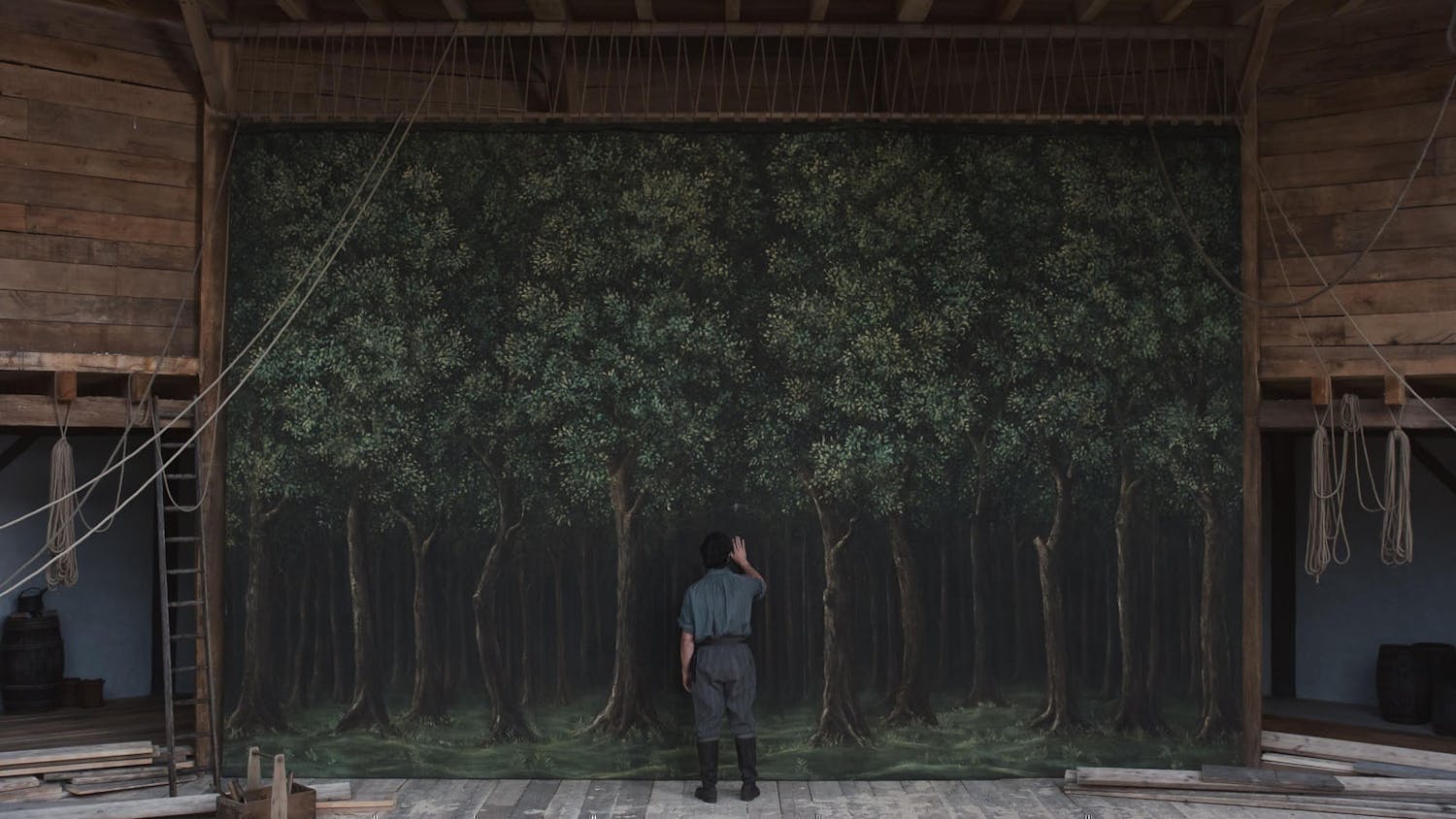Associate Art Professor Naoco Wowsugi received the Green Teacher of the Year Award for her sustainable teaching methods and values of eco-conscious community building on April 10.
Wowsugi is a first-generation immigrant who moved to the U.S. from Nagoya, Japan, to continue her film studies. She joined the American University faculty during the fall 2013 semester and teaches video art, digital photography and a senior seminar.
To be considered for the Green Teacher of the Year Award, an AU faculty member must have a Green Teaching Certificate. The Green Teaching Certificate allows faculty to receive points by choosing from a list of more than 50 eco-friendly practices they can incorporate in the classroom for an academic year.
Faculty can also apply for bonus points by selecting additional “green” activities. A teacher who exceeds certification requirements and goes the extra mile to implement sustainable methods of teaching is recognized for their efforts.
Wowsugi’s practices as a Koeran-Japanese artist and teacher go above and beyond the standard “green” practices, such as limiting paper use and reducing emissions. Her conceptual approach to art centers around the bond between communities and the environment.
“I like working with nature, with community and other people because of something about control and collaborative nature,” Wowsugi said.
Wowsugi enjoys the uncontrollable aspects of art and nature. She sees harm in the idea of control and manipulating artistic expression.
“Trying to control things has become an obsession instead of working with how things go,” Wowsugi said. “Less control, let it be, work with it.”
Wowsugi’s students use organic and eco-conscious materials to allow for less control. In this way, Wowsugi unites sustainability and art.
Alongside her own teaching practices, Wowsugi invites eco-conscious artists to her classes to work on collaborative projects and to teach her students technique.
According to Wowsugi, she values teaching collaboration because it is a skill that needs to be learned and practiced.
“With what you learn, you have to collaborate, so collaboration needs to be also learned,” Wowsugi said. “It needs to be practiced because it’s hard.”
Aside from control and collaboration being an integral part of Wowsugi’s values, she encourages digital culture in her classroom.
“I post everything on Canvas, PDF,” said Wowsugi. “If I have to print, I use recycled paper.”
To Wowsugi, being “green” is not just incorporating sustainability and eco-conscious methods of teaching into her classes. It’s about being conscious and mindful, and applying those attitudes when participating in “green” activities.
“It’s time to take action practically and creatively,” said Wowsugi. “Really make changes.”
Wowsugi’s community-based environmental art projects are notable for their inclusivity, activism and empowerment.
This was exemplified in her 2016 show “Permacounterculure,” where she brought local punk artists into a garage-like greenhouse to promote the growth of wheatgrass through a series of shows. The carbon dioxide from the crowd and soundwaves of the music nourished the wheatgrass to make juice shots.
“Circulate … that is another way of thinking sustainably,” Wowsugi said.
Another one of Wowsugi’s projects where she connects botany, art and community is the “Very Sad Lab.” Accompanied by artist Valerie Wiseman, she created a houseplant rehabilitation and art research center in 2019.
People are encouraged to bring their sad houseplants to the Very Sad Lab at the Eaton Workshop where they will be diagnosed and treated with a rehabilitation plan.
“If you make your houseplant sad, bring it to the Very Sad Lab,” Wowsugi said.
Wowsugi’s advice to AU students is to engage with the community. She encourages others to think about larger issues and how to become involved with finding their solutions.
“Once a week or a few hours a week try to live in D.C. than in AU,” Wowsugi said. “Respect local and try to think what that means.”
This article was edited by Clair Sapilewski, Sara Winick and Abigail Turner. Copy editing by Luna Jinks, Charlie Mennuti and Sarah Clayton.





